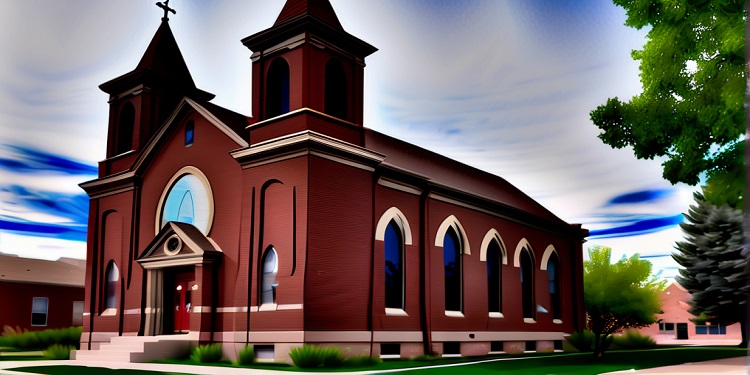A pioneering project is set to utilize blockchain technology to attract investors in an ambitious plan to purchase the oldest church still standing in Fort Collins, Colorado. The initiative focuses on acquiring the historic church building, located at the intersection of Remington and East Magnolia streets, for $2.3 million, with the goal of making it available for community use. The Colorado House of Prayer, the current primary tenant, is among the organizations expected to benefit from this endeavor.
The project aims to achieve this through a process known as “tokenization,” where shares of the church are offered for purchase on the blockchain. Tokenization involves the digital representation of ownership shares on a blockchain platform, allowing investors to buy and hold these tokens, which serve as proof of their stake in the property. This method, as explained by The Associated Press, leverages blockchain technology to record transactions in secure, encrypted digital records that are maintained across servers worldwide. Although blockchain technology is commonly associated with cryptocurrencies like Bitcoin, this particular offering is distinct in that it does not involve cryptocurrency but rather tokens representing ownership in the church.
The project’s website emphasizes the transformative potential of tokenization, noting that traditional ownership structures make it nearly impossible for large groups of individuals to co-own a single property. Through tokenization, however, it becomes feasible for up to 2,000 people to collectively own a property like the Old Stone Church. The investment opportunity is being facilitated by REtokens, a company specializing in the tokenization of real estate assets.
At present, shares in the church are only available to accredited investors, with the minimum investment set at $50,000. Investors have the opportunity to purchase one of the 5,000 shares available, each priced at $500. The primary objective during this phase is to raise sufficient funds to purchase the building from its current owner. Following this acquisition, the plan is to hold the property for one year before offering shares on the secondary market.
These shares, referred to as “Stone Tokens” on the project’s website, will eventually be made available to the general public. When this occurs, investors will be required to purchase a minimum of three tokens, equating to an initial investment of approximately $1,500. The value of each token, initially set at $500, will be tied to the building’s appraised value and will undergo annual reassessment to reflect any changes in the property’s worth.
The long-term vision for the project is to allow the continuous buying and selling of these Stone Tokens by investors, a process that is anticipated to continue indefinitely. According to the project’s website, the tokens will remain in circulation until either a divine intervention or a collective decision by the majority of investors and the board necessitates the sale of the building.
The overarching goal of this initiative, as stated on the project’s website, is not merely financial gain but rather a commitment to serving the community. The project organizers have underscored their intent to maintain the church as a community asset, preserving its historic and cultural significance for future generations.
This effort to tokenize the Old Stone Church represents a groundbreaking moment in the intersection of blockchain technology and real estate. The church is believed to be the first property of its kind in the United States to undergo tokenization, setting a precedent for similar initiatives in the future. By combining innovative financial technology with a focus on community service, the project aims to safeguard a piece of Fort Collins’ heritage while offering a novel investment opportunity to a broad range of stakeholders.
